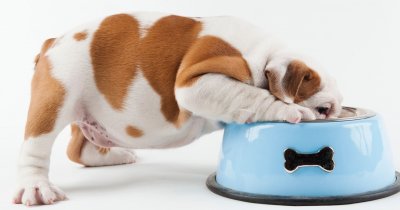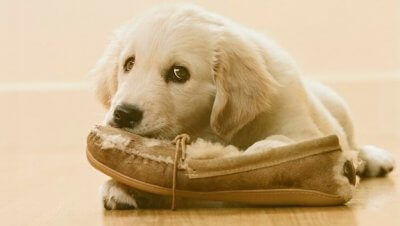Dog owners expect their dogs to eat regularly without any issues, but just as eating disorders affect humans, it is also plaguing many dogs. There are several reasons eating disorders occur in animals, but veterinary experts speculate that it is often a result of a medical or psychological condition.
Well, regardless of why it happens, eating disorders can be just as troubling for concerned dog parents. In this post, we will be exploring the 5 most common eating disorders that affect dogs.
Eating Disorders That Affect Dogs:
#1: Under-Eating or Anorexia
It can be normal for a dog to skip a meal here or there, but when such a dog stops eating entirely, it might be a thing of concern. Anorexia can result in serious conditions such as fever, jaundice, shortness of breath, abdomen distension, and many more.
This eating disorder can be caused by a number of factors. It can be a sign of a serious illness deep in your pup’s body and can be as a result of aging, stress, lack of physical activity, and depression can also all be the cause of your dog’s under-eating.
Your dog may also lose their appetite because of vaccination or medications. So if you notice your pup is not eating as much as it should or stops eating completely, you should see a vet to determine what the cause really is.
#2: Overeating

Just like under-eating is bad, overeating can also lead to some serious complications like overweight, obesity, joint problems, liver disease, and heart disease. So if your dog eats too much, you may need to watch that.
Most dogs that suffer from this disorder fell victim because their owners will always give them food whenever they call for it – even when they are not hungry. Pets can be cunning and sometimes are mere opportunistic eaters and not actually hungry. So to help your dog overcome this eating disorder, you will need to regulate their food. Watch how much treat you give throughout the day because that also can add up calories for your pup.
Remember, it is your responsibility to help your dog overcome overeating disorder, so start working on that now.
#3: Feces eating or coprophagia
Feces eating can be a really dangerous habit in dogs. Unfortunately, many dogs do this even without their parents knowing about it. Coprophagia can be difficult to break in dogs, especially ones that roam or regularly go on a walk. Worms, parvo, giardia, and several other bacteria and parasites may be present in the feces your dog picks up.
There are many reasons dogs eat feces. Most dogs do it intuitively and some just want to know if what they are eating is food, especially the puppies. In a house where there are many dogs, the weaker ones may be seen eating the poops of the dominant dogs.
Dogs can also eat poops to avoid punishment. However, regardless of why your dog is doing this, you should consult your veterinarian for possible solutions.
#4: Pica
 This is a common eating disorder, mostly in dogs with anxiety. It is an act of eating objects that are not meant to be food. This can include anything from wood to cotton, rocks, and even metal objects. Pica can cause diverse serious health conditions for your dogs. It can result in choking and blockages.
This is a common eating disorder, mostly in dogs with anxiety. It is an act of eating objects that are not meant to be food. This can include anything from wood to cotton, rocks, and even metal objects. Pica can cause diverse serious health conditions for your dogs. It can result in choking and blockages.
Check if your dog is stressed because that is the first reason behind unusual behavior like pica. Frustration, stress, boredom, loneliness, and lack of exercise can all make your dog develop pica. So work on it or talk to a vet.
#5: Scoffing
This happens when your dog tends to eat food too quickly, usually without chewing. Scoffing can cause choking and other gastrointestinal problems like bloating, vomiting, and gastric torsion. This behavior is usually carried over from puppyhood to adulthood and occurs mostly in a house where there are more than one dog.
Dogs tend to want to eat up quickly before the food is taken away or eaten by another dog, and gradually it leads to scoffing. However, there are now some feeding bowls designed to help combat this disorder. They are meant to slow down speedy eaters.
You can also try hand-feeding your dogs or serving them small portions at a time instead of filling their bowl all at once.
Final note
Eating disorders are common in dogs and you should watch your dog to know if they suffer from any of these. If your dogs do, find a way to make some adjustments – whether in daily routine or feeding habits to correct it. Otherwise, you should speak with a vet to know the next thing to do to help your furry friend.


